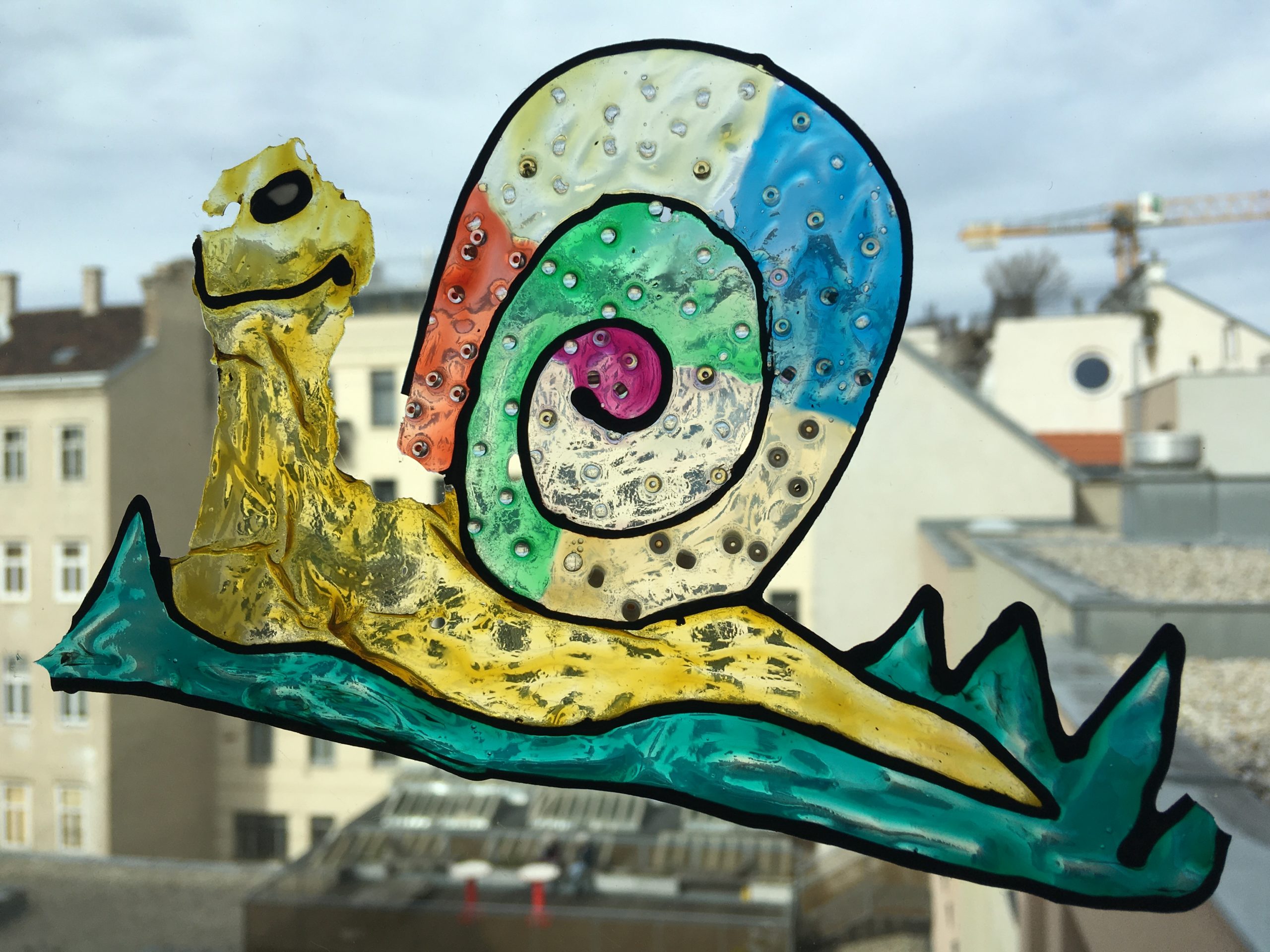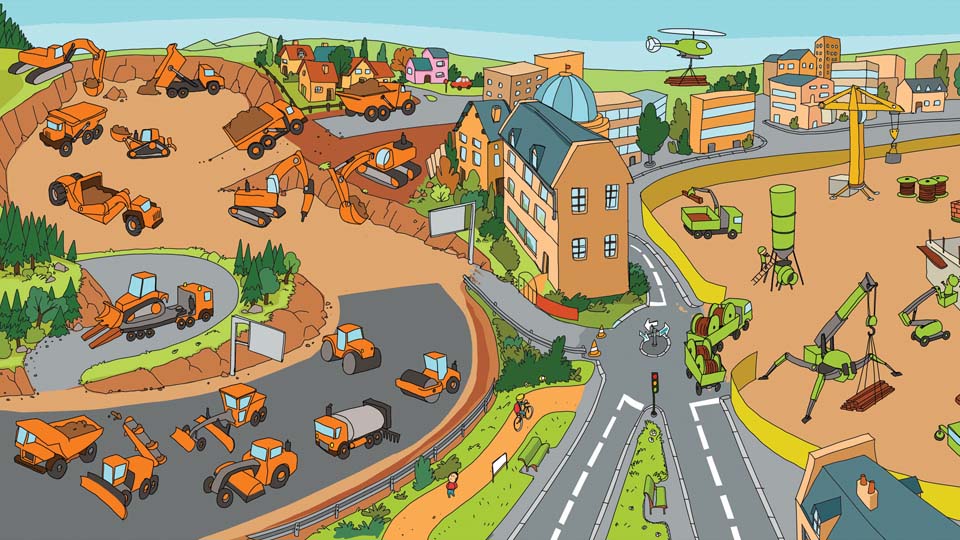Degrowth addresses the negative consequences of consumerism (psychological stress, long working hours and positional competition) and discusses the benefits of frugal lifestyles. Henri Lefebvre, a French philosopher from the 20th century, argues that if ideas or values are not physically implemented in space, they become mere fantasies. As such, if degrowth wishes to prevail, it has to leave its mark on space, just as consumerism has successfully done. This article considers ideas of creating space and human-nature connectedness, which in combination, seem to be a perfect match in forming a strategy for degrowth.
 Through the interplay between rationalization and enchantment, people are constantly lured into the role of a consumer.
If the consumption paradigm is secretly oppressing consumers, why do individuals not break free from this role? All they have to do, so it seems, is stop purchasing superfluous goods. In other words, one might wonder, are consumers not responsible for their own oppression? According to Lefebvre, individuals occupy space the way it is offered to them. People are constantly stimulated to exercise their individual freedom by means of purchasing a variety of goods. Emile Durkheim, a French sociologist, perceived consumption as a collective behaviour that has been forced upon humankind. The paradigm propels ideas such as the key to a happy life being consumption, and ‘you are what you own’. The current economic system depends on this kind of rhetoric. People need to be ultimately dissatisfied with what they have (i.e. who they are) for them to continue buying superfluous goods and services beyond their needs. No one spiritually believes in excessive consumption or belongs to a consumer tribe, yet all citizens are consumers.
Through the interplay between rationalization and enchantment, people are constantly lured into the role of a consumer.
If the consumption paradigm is secretly oppressing consumers, why do individuals not break free from this role? All they have to do, so it seems, is stop purchasing superfluous goods. In other words, one might wonder, are consumers not responsible for their own oppression? According to Lefebvre, individuals occupy space the way it is offered to them. People are constantly stimulated to exercise their individual freedom by means of purchasing a variety of goods. Emile Durkheim, a French sociologist, perceived consumption as a collective behaviour that has been forced upon humankind. The paradigm propels ideas such as the key to a happy life being consumption, and ‘you are what you own’. The current economic system depends on this kind of rhetoric. People need to be ultimately dissatisfied with what they have (i.e. who they are) for them to continue buying superfluous goods and services beyond their needs. No one spiritually believes in excessive consumption or belongs to a consumer tribe, yet all citizens are consumers.
 The first, homogenization, refers to the forces that reduce anything into monetary value. Space generates money if it is converted into shops, parking spots, terraces, etc. The second tendency, fragmentation, refers to the forces that pulverize the environment into single-use spaces, serving one particular human need at a time. For example, people exercise in gyms, work at the office and eat in restaurants. Space in this regard represses the full vibrant being of humankind.
There is a movement called Free 54 in Brussels, which is slang for the Saint Catherine Square in the city centre. It is a place where the young, old and homeless hang out and kids play football. A few years ago, part of the square became privatized by surrounding restaurants who expanded their terraces onto the square. In response, Free 54 organized events with free food and built benches where people could sit, in an attempt to ensure that the public space remained public. The movement fights against the reduction of space into solely its exchange value and instead celebrates diversity of human social life. Lefebvre refers to such places as differential space, meaning that it is not single-use, but vibrant, colourful and diverse. Social exclusion or marginalization does not exist in the context of differential space. It is a place where people can eat, connect, learn, debate and so forth.
The first, homogenization, refers to the forces that reduce anything into monetary value. Space generates money if it is converted into shops, parking spots, terraces, etc. The second tendency, fragmentation, refers to the forces that pulverize the environment into single-use spaces, serving one particular human need at a time. For example, people exercise in gyms, work at the office and eat in restaurants. Space in this regard represses the full vibrant being of humankind.
There is a movement called Free 54 in Brussels, which is slang for the Saint Catherine Square in the city centre. It is a place where the young, old and homeless hang out and kids play football. A few years ago, part of the square became privatized by surrounding restaurants who expanded their terraces onto the square. In response, Free 54 organized events with free food and built benches where people could sit, in an attempt to ensure that the public space remained public. The movement fights against the reduction of space into solely its exchange value and instead celebrates diversity of human social life. Lefebvre refers to such places as differential space, meaning that it is not single-use, but vibrant, colourful and diverse. Social exclusion or marginalization does not exist in the context of differential space. It is a place where people can eat, connect, learn, debate and so forth.
 For example, one of the proposals to transition towards degrowth is to reduce working hours and increase leisure. However, this strategy would not automatically contribute to the creation of a degrowth society. It only seems like a contributory measure because degrowth proponents expect people to spend their extra leisure time in a non-consumptive way (such as volunteering).
This may be wishful thinking, since leisure has already become an industry that manipulates people into spending their time in shopping malls.
A more holistic connection with nature has the capability of changing the structure of values upon which consumerism is based, and could contribute to a cultural reorientation of society towards degrowth. For example, urban community gardens enable people to experience nature while enhancing environmental knowledge and learning how natural processes function. Moreover, gardening offers benefits for mental health, builds social cohesion and encourages attachment to place. Doing something for the community and interacting with nature can help shift an individual’s values from being more self-oriented, to community-oriented. Moreover, nature brings together different people such as those interested or engaged in sheltered workshops, food systems, climate justice, and community engagement, which is exactly what Lefebvre meant when he talked about differential space.
The current predominance of material connections with nature trap people into a continual cycle of short-term satisfaction and reaffirm again and again the view that the environment provides resources to be exploited. Forming deeper human connections with nature can contribute to the development of meaningful relationships, community engagement, and personal fulfillment. These are goals promoted by the degrowth movement and they stand in opposition to those of consumerism. The pursuit of greater human-nature connectedness could reduce luxury desires for positional goods, causing excessive consumption to decrease. As such, by acting out degrowth ideas in space, seeds can be planted for cultural change within society.
What ties society together is the lived space where individuals encounter one another, and experience the city. As such, instead of just being consumers, people need space to connect with nature and with each other. Interaction with nature increases people’s sense of meaning and decreases consumptive values, and should therefore be investigated further by the degrowth movement. By changing cultures before seeking political change, greater human connectedness with nature can be an important strategy for inspiring rather than imposing the transition from a consumptive society, to degrowth.
This article is part of a series on degrowth.info discussing strategy in the degrowth movement. The introduction to the series and an ongoing list of contributions that can be found here.
For example, one of the proposals to transition towards degrowth is to reduce working hours and increase leisure. However, this strategy would not automatically contribute to the creation of a degrowth society. It only seems like a contributory measure because degrowth proponents expect people to spend their extra leisure time in a non-consumptive way (such as volunteering).
This may be wishful thinking, since leisure has already become an industry that manipulates people into spending their time in shopping malls.
A more holistic connection with nature has the capability of changing the structure of values upon which consumerism is based, and could contribute to a cultural reorientation of society towards degrowth. For example, urban community gardens enable people to experience nature while enhancing environmental knowledge and learning how natural processes function. Moreover, gardening offers benefits for mental health, builds social cohesion and encourages attachment to place. Doing something for the community and interacting with nature can help shift an individual’s values from being more self-oriented, to community-oriented. Moreover, nature brings together different people such as those interested or engaged in sheltered workshops, food systems, climate justice, and community engagement, which is exactly what Lefebvre meant when he talked about differential space.
The current predominance of material connections with nature trap people into a continual cycle of short-term satisfaction and reaffirm again and again the view that the environment provides resources to be exploited. Forming deeper human connections with nature can contribute to the development of meaningful relationships, community engagement, and personal fulfillment. These are goals promoted by the degrowth movement and they stand in opposition to those of consumerism. The pursuit of greater human-nature connectedness could reduce luxury desires for positional goods, causing excessive consumption to decrease. As such, by acting out degrowth ideas in space, seeds can be planted for cultural change within society.
What ties society together is the lived space where individuals encounter one another, and experience the city. As such, instead of just being consumers, people need space to connect with nature and with each other. Interaction with nature increases people’s sense of meaning and decreases consumptive values, and should therefore be investigated further by the degrowth movement. By changing cultures before seeking political change, greater human connectedness with nature can be an important strategy for inspiring rather than imposing the transition from a consumptive society, to degrowth.
This article is part of a series on degrowth.info discussing strategy in the degrowth movement. The introduction to the series and an ongoing list of contributions that can be found here.

Degrowth imagines a radically different future, which is why so many have connected to its message. But it is a future which seems very distant from today’s political, economic and social system. So what does it mean, in practical terms, to organize towards a degrowth future in a highly commodified and competitive present? Fundraising for degrowth I have been coordinating the fundraising ...

Degrowth poses a fundamental challenge to a Labour Party that has yet to decide how far it wishes to transcend – and not merely reform – a growth- oriented, capitalist political economy. The British Labour Party has seen a resurgence of radicalism since the 2007-8 financial crash. With the collapse of the authority of neoliberalism, a space has opened for alternative ideologies, theories and...

If current crises like environmental degradation and social inequality can be seen as result of our economic and social systems, the concept of a degrowth economy has been advanced as a possible solution. Degrowth is in direct contrast to economic systems such as capitalism or sustainable growth, and in fact has much more in common [...]